Taiwan President Tsai Ing-wen observing a military maneuver © President.gov.tw
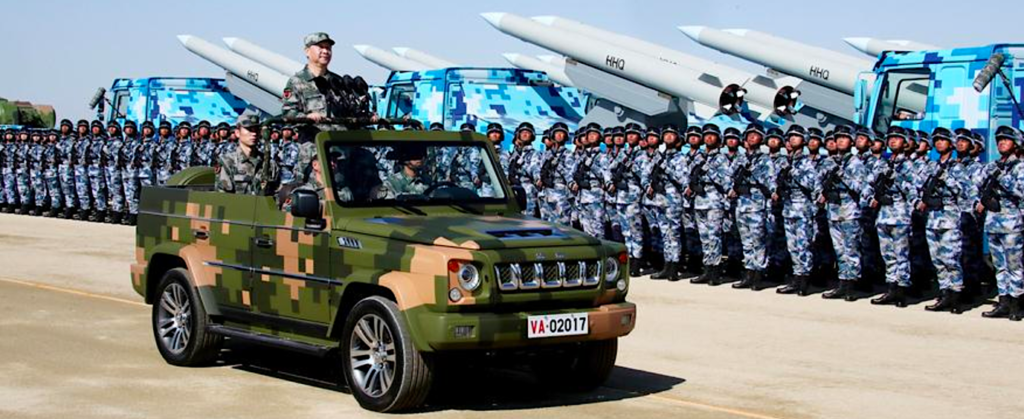
Chinese President Xi Jinping reviews the armed forces as part of the commemorations to mark the 90th founding anniversary of the People’s Liberation Army (PLA) © Mod.gov.cn
In the much-troubled Chou Dynasty China of the 6th century BC, the philosopher Kong Qui, known in China as Zhongni (which means Master Kong, who was subsequently misnamed in the West by Jesuit missionaries as Confucius), wrote: “To rule a country of a thousand chariots, there must be reverent attention to business, and sincerity; economy in expenditure, and love for men; and the employment of the people at the proper seasons.” That seems to be the precept by which Xi Jinping’s China seeks ever-greater influence in the world, although just how much “love for men” is apparent is a matter for debate. Economic strength, however, is China’s goal and one in which it seems to have succeeded. China does not like Taiwan being independent; it is the island to which, of course, Chiang Kai-shek’s Kuomintang (KMT) nationalists retreated from Mao Zedong’s victorious Communist army. The KMT ruled the island as a one-party state for 40 years and were internationally recognised for years as the Republic of China, much to the annoyance of those ruling the vast territory of mainland China from Beijing. For Mao and his successors, Taiwan was unfinished business.
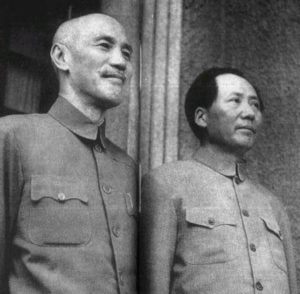
At least he seems to have realised it was an issue to be left for another time. Xi Jinping, on the other hand, has tried to pretend it doesn’t even exist, putting pressure on Western powers, companies and international organisations to list Taiwan’s towns and cities as ‘part of China’. They are not. Taiwan is a democratic, self-ruled entity that has been economically successful and whose people do not, by and large, speak Mandarin Chinese as their mother tongue, speaking Formosan dialects instead. To the Portuguese who first set up trading links there, the Island was called Formosa. In the late Pleistocene era, some 140 million years ago, when sea levels were much lower, the Taiwan Strait was dry land and the island really was part of the mainland. However much Xi may prefer things to be otherwise, however, he can’t wish away a stretch of water now 160 kilometres wide and 70 metres deep.
Taiwan has inevitably been caught up in the war of words between Beijing and Washington, and no outcome looks especially promising. If the verbal war becomes a shooting war, Taiwan looks rather vulnerable, being so close to the Chinese mainland. On the other hand, if a new US administration were to take a less hostile stance towards China, it may not see its defence of the island as quite so important. Xi still talks about “Communism with Chinese features” and the duty of all Chinese people to “liberate all humanity” and to become what he called (not for the first time) the “gravediggers of capitalism”. Strange, then, that China’s businesses are engaged in what looks very much like capitalist competition with other capitalists and every bit as cut-throat.

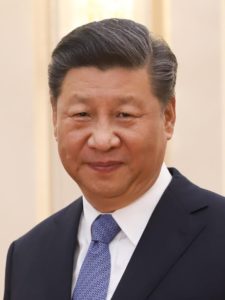
An official report to the US Congress reminded readers that: “In 2017, Beijing announced its goal to build the People’s Liberation Army (PLA) into a ‘world-class’ military, overcoming remaining shortfalls in the force’s capabilities to establish China firmly among the ranks of the world’s leading military powers.” This takes us back to Mao’s ‘Little Red Book’, which quotes from one of Mao’s older writings, dating back to 1939. “Experience in the class struggle in the era of imperialism teaches us that it is only by the power of the gun that the working class and the labouring masses can defeat the armed bourgeoisie and landlords; in this sense we may say that only with guns can the whole world be transformed.”
From Xi’s point of view, he wants to see Taiwan transformed into part of the People’s Republic and his ambitions may require him to abide by one of Mao’s own precepts: “Political power grows out of the barrel of a gun”. Of course, so does repression and tyranny.
In recent times, Xi has been facing off an increasingly aggressive, unsympathetic and antagonistic US President in Donald Trump. Now Trump is going, where does that leave Taiwan? Is it going to be an unwilling trade-off in attempts to placate or appease Beijing? Polls showed that most Taiwanese wanted Trump to win. What attitude will Joe Biden take towards them?
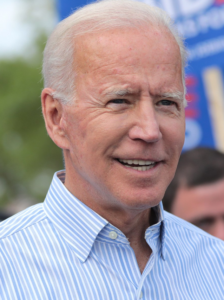
It’s not an issue Taiwan can afford to leave to chance, which is why Taiwan’s President, Tsai Ing-wen, has already made virtual appeals to three leading US think tanks, urging the incoming administration to continue working with Taipei in standing up to Beijing’s threats to security in the South China Sea. She wants to win popular support in the United States for resisting China’s bullying. The Taiwanese public is certainly nervous that US China policy may change under a Biden presidency and take a softer stance towards Xi, unintentionally encouraging adventurism and his ambitions to take back Taiwan. They have plenty to worry about. Since early September, China has been carrying out its most provocative show of force in years. China has employed thirty or more combat aircraft and a number of military vessels, which have engaged in military patrols of the Taiwan Strait every other day. Many of them have even crossed the median line between the countries that had been respected for decades, until last year.
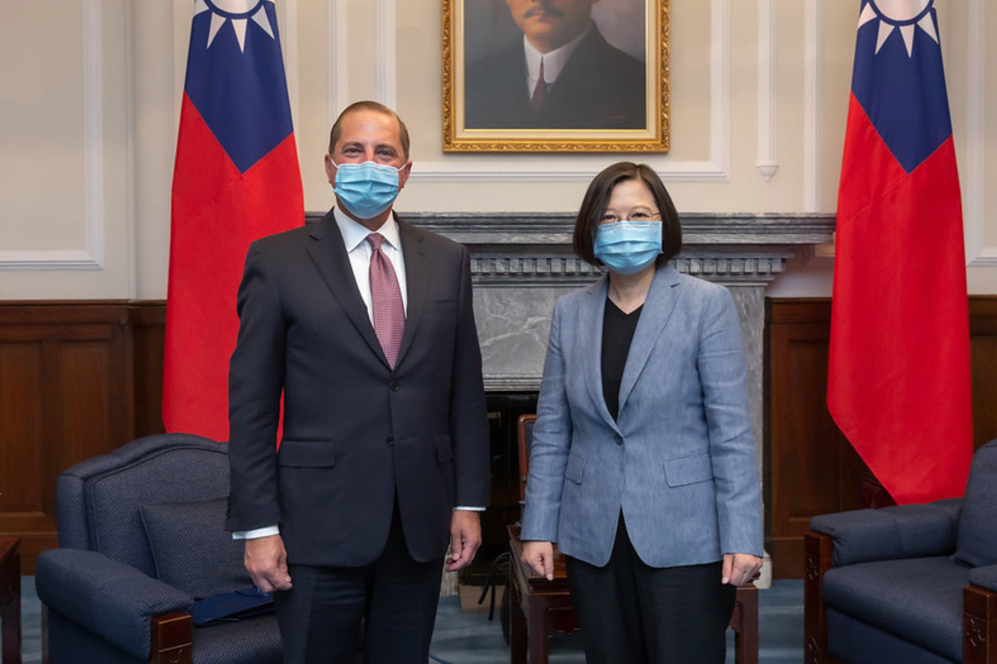
Virtually every day, Taiwan’s air defence systems are activated because of incursions into its Air Defence Identification Zone (ADIZ). Most often, the aircraft are Shaanxi Y-8 turboprop planes, based on the old Soviet-era Antonov An-12. On one day, three such incursions led to warnings being issued to the public. The three offending aircraft were different versions of the Y-8, one anti-submarine version (the commonest in these repeated incursions), one was an electronic warfare version and the third was a tactical reconnaissance type, according to Taiwan’s Ministry of National Defence. These may just be attempts to rattle the bars of Taiwan’s defences, to cause annoyance and concern, much as Russia does in and over the territorial waters of Scandinavian countries and the United Kingdom. It is a worry, though, to Taiwan and its allies. In a report to the US Congress by the US-China Economic and Security Review Commission, “Through its modernization efforts, China has emerged as an unprecedented economic rival and a growing military threat capable of inflicting grave harm on the United States and its allies and partners. China’s economic engagement with the United States has proved to be a critical enabler of its rapid economic growth, steadily feeding Beijing’s confidence in its ability to act on its long-standing ambition to match and ultimately displace the United States as the predominant global leader.”
VAULTING AMBITION
Xi Jinping is not really much like his predecessors: he’s more ambitious for global power and his dislike of America and all it stands for seems to be almost visceral. “The ruling Chinese Communist Party (CCP) regards the liberal democratic values championed by the United States as a fundamental impediment to its external ambitions and an existential threat to its domestic rule,” says the same Congressional report. “Chinese leaders’ assessment of the United States as a dangerous and firmly committed opponent has informed nearly every facet of China’s diplomatic strategy, economic policy, and military planning in the post-Cold War era. Although elements of this competition have been evident for some time, under General Secretary of the CCP Xi Jinping the competition has intensified.”
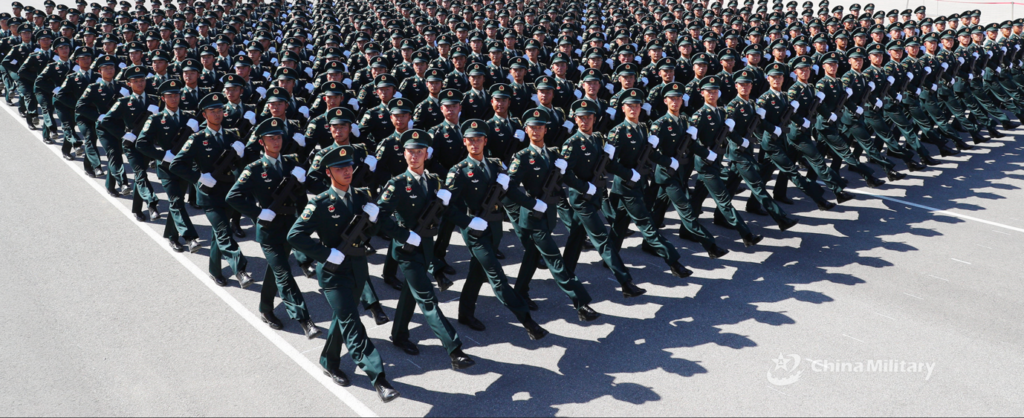
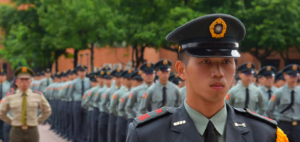
Where does that leave Taiwan? Beijing has at its command a military machine ten times the size of anything Taiwan can boast. That includes the largest air force in Asia, the biggest army, more conventional missiles and far more ships. Its long-range defence systems can shoot down aircraft in the skies over Taiwan and it could, at the press of a button (or several buttons), wipe out Taiwan’s air force and even destroy the US bases in the region, although it’s unlikely to attempt such a plainly suicidal manoeuvre. But China would have to want to wipe Taiwan off the map altogether, which certainly isn’t part of Xi’s game plan. As an article on the Foreign Policy (FP) website points out, while mainland China certainly has the numbers, Taiwan is a natural fortress, guarded by a strait that experiences typhoons and 10-metre-high waves, with steep cliffs to its eastern coast and miles of mud flats on the western side, that are not only difficult to cross but are also swept by strong and treacherous tides.
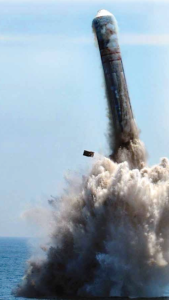
According to FP, Taiwan only has about a dozen beaches where an invasion force could land, where the vessels landing them would be extremely vulnerable to missile attack.As a result, experts have advised Taipei to invest its limited defence budget in mobile missile launchers, armed drones and mines. It should also, they suggest, develop an army that can put tens of thousands of troops on any of its beaches, backed up with a million reserve troops trained in guerrilla fighting techniques.
It might not stop a truly dedicated China but it would slow them down and make the exercise extremely expensive in both men and matériel. However, FP points out, Taiwan and the US would have to start building such defences without delay and there are fears that a Biden administration, like that of Barrack Obama, would not want Taiwan to present an obstacle to any possible friendly accommodation with Beijing.
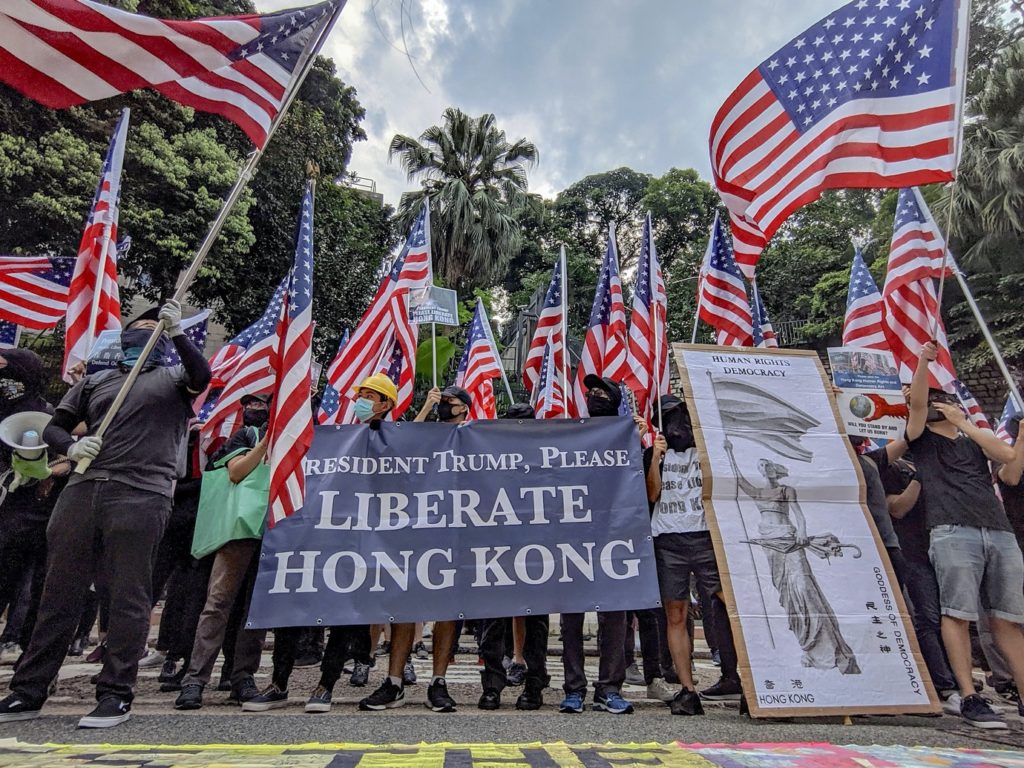
In any case, Washington is somewhat distracted by Hong Kong. China’s ‘one country, two systems’ promise when the United Kingdom handed it back has long since been forgotten. As the old saying goes, ‘promises are like pie crusts, made to be broken’. And Xi always planned to have his finger in the pie. The 19th century American anarchist Lysander Spoone wrote, “Those who are capable of tyranny are capable of perjury to sustain it.” How true. In November, China forced out of the Hong Kong legislative body four members it didn’t like, because they had supported independence, even if only the limited independence Beijing had promised. On 11 November, the National People’s Congress Standing Committee (NPCSC) disqualified the democratically elected members who, as Human Rights Watch (HRW) quotes, “publicise or support independence”, “seek foreign interference” or pursue “other activities that endanger national security”. Fifteen other members of the Hong Kong legislative assembly resigned in sympathy. So even the last pretence of keeping its promises to Hong Kong has been abandoned. No Chinese lawmaker, whether in Hong Kong or on the mainland, will now have any power to say ‘no’ to whatever Xi decides. HRW says the decision has turned “the semi-democratic Legislative Council, or LegCo, into a rubber-stamp body.” Even before Beijing took this step, however, “almost half of the LegCo members were facing dubious criminal charges designed to harass them and block their political participation.” It doesn’t seem to bother Hong Kong’s chief executive, the Beijing-faithful Carrie Lam, who has said that having a legislature with no opposition is “nothing to be ashamed of” and that she is “excited” that the government will be able to pass bills “more efficiently”. She seems not to have grasped the basic idea of democracy. It means, of course, ‘one person one vote’, but in Carrie Lam’s peculiar and subservient world, that one person is Xi Jinping.
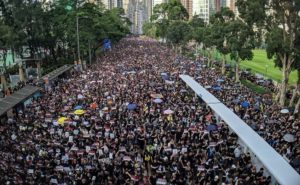
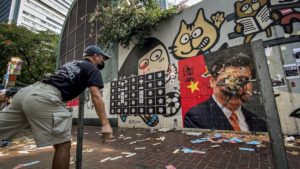
In early December 2020, prominent participants in pro-democracy demonstrations were jailed for “inciting, organising and participating in unauthorised assembly”, an offence under Hong Kong’s Public Order Ordinance. The charges arise from speeches made to crowds outside the police headquarters in 2019. “Hong Kong is descending at a dizzying pace from a city of freedoms to a mainland Chinese city that criminalises peaceful protests,” according to senior HRW China researcher Maya Wang. Nobody was hurt in the 21 June protests but the magistrate who presided at the trial said that “derogatory chants” towards police officers had “challenged police power”. Tut, tut. Interestingly, the protests concerned had been about police brutality, so respect for the police may not have been high on the agendas of the protestors at the time.
It’s just the latest in a series of draconian measures designed to snuff out democracy altogether. Xi (and his minions) do not want anyone daring to question his decisions. No emperor of old in China held so much unchallengeable power. In fact, it is fair to compare Xi with the emperors of China’s long historical past. In his book China: A History, historian John Keay writes: “Though emperors were neither subject to any form of law nor accountable to anything in the nature of a representative body, they were not therefore beyond all restraint. The Mandate might be forfeited if they abused it,” Confucius had told one of his followers: “If it is not right, remonstrate.” Who would dare do that to Xi? Would they even survive such an act of lèse-majesté?
PRAISE THE LORD AND PASS WHAT AMMUNITION?
The Taiwanese, then, have a lot to fear from China, and yet the island’s defensive capabilities are highly questionable. According to Human Rights Watch (HRW) its military forces have only one civilian maintenance or management worker for every twenty armed personnel, compared to one for every two in the US. As a result, Taiwan’s armed forces regularly find they have no weapons or ammunition and maintenance is so poor that soldiers avoid training in case they damage what weapons they have, or else run out of bullets. Some estimates have suggested that most of Taiwan’s military pilots fly for less than ten hours each month and that more than half of Taiwan’s tanks and attack helicopters don’t actually work, or not properly. As a result of saving wear and tear on equipment, morale among military forces is low and many soldiers lack basic tactical knowledge. You may be certain that if HRW is aware of these glaring deficiencies then Beijing is as well. It was the American naval chaplain Howell Forgy who told a line of sailors, engaged in doing the very thing he was talking about, “praise the lord and pass the ammunition” but their present-day Taiwanese equivalents may have none to pass. That’s not very reassuring to the people of Taiwan.
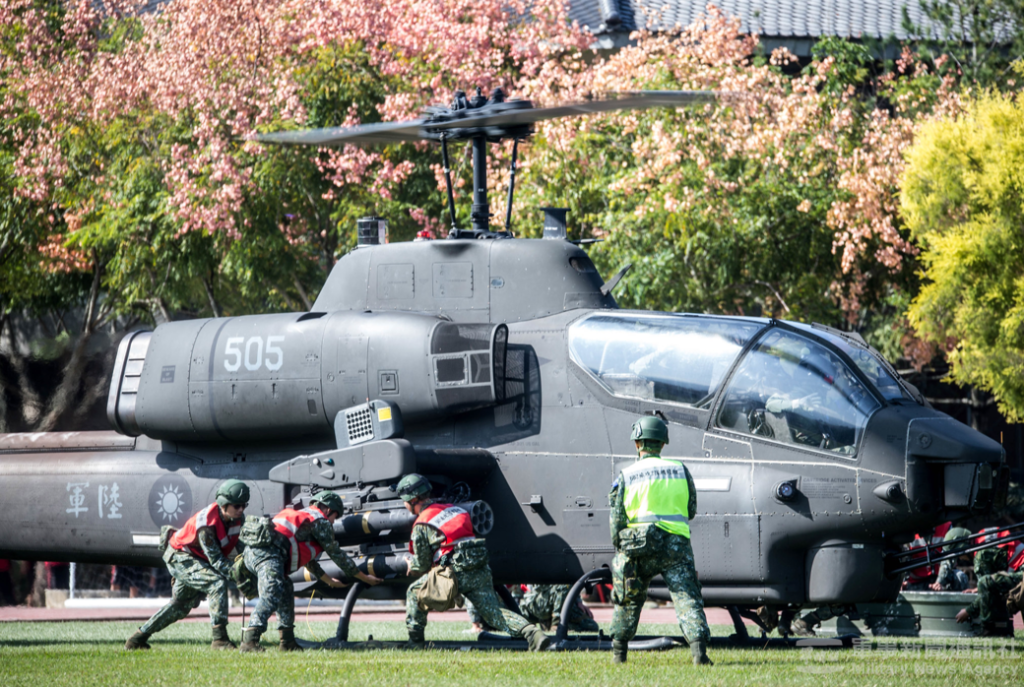
“China is not an adversary to NATO,” said NATO Secretary General Jens Stoltenberg at the end of a 2-day virtual meeting of the organisation’s foreign ministers in early December. “It is clear that China’s rise can provide new opportunities.” How, you may well ask. “For instance on trade, and engagement on global issues, such as arms control and climate change.” There is a caveat, however, to this optimistic summary, as Stoltenberg admits: “China has the second biggest defence budget in the world and is investing heavily in new capabilities. And China does not share our values.” What does that mean in practice? Stoltenberg explains NATO’s views on the People’s Republic: “It undermines human rights. It bullies other countries. And is increasingly engaging in a systemic competition with us.” His solution is for others that share NATO’s values to work more closely together. The ministers attending the meeting agreed to organise a comprehensive report on China to assess its military development, its growing activity in NATO’s neighbourhood and the implications for “NATO resilience”. They also agreed that NATO must continue to engage with China but that, as a rising power, China must respect the international rules-based order.
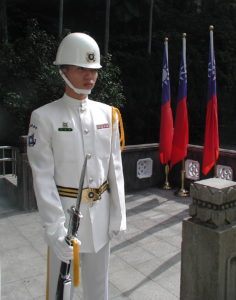
From Taiwan’s point of view, hope still resides in the belief that in an emergency the US will come rushing to its aid. Its politicians certainly haven’t done very much to address the glaring problems with their defence strategy. Like most non-military people, they don’t seem to know or understand tactics and logistics: an infantry division of well-trained soldiers is boring in media terms compared with exciting new equipment, in the same way that everyday groceries are less interesting than, say, buying jewellery or a shiny new motorcycle. It’s far more impressive to buy big ships, submarines and American fighter jets, even if the planes lack missiles to use in combat.
However, the US has no bases very near to Taiwan. Only two of them are within 800 kilometres, which is also the furthest combat range for a US fighter jet without refuelling. The alternative would be aircraft carriers, which are even more vulnerable to Chinese missiles, especially in the hazardous Taiwan Strait. We have the ironic situation that Taiwan has the geographic advantages of a natural fortress while the US has the world’s most powerful military, but neither is likely to avail much if China decided to take Taiwan by force. In November 2020, Taiwan began construction of eight new attack submarines, the first indigenous vessels of their type. They’re being built by a Taiwanese company at a specially designed shipyard in Kaohsiung, a massive port city in the south of the island.
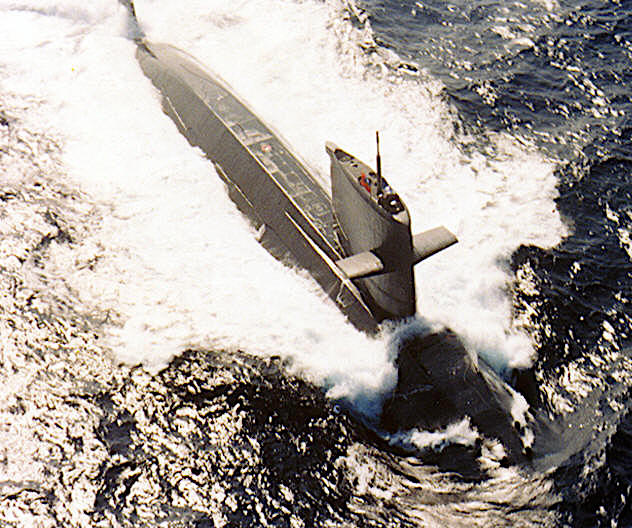
They replace Taiwan’s ageing fleet of four submarines, purchased from the Netherlands and the US and two of which date back to the 1940s.
The new subs have been designed to work well in the Taiwan Strait, where China’s massive navy may find the going tough, and they will be armed with Harpoon anti-ship missiles and torpedoes, at an overall cost for the first submarine of around US$1.72 billion (€1.42 billion).
It’s due to be ready to enter service during 2024, the others following as soon afterwards as practicalities permit. The overall cost of all eight new vessels has been estimated at around $16 billion (€17.74 billion). 2024 should also see the completion of upgrades to two of Taiwan’s existing submarines.
The new fleet will be powered by lithium-ion batteries and have double hulls. China itself, of course, already has a massive numerical advantage in the size of its fleet, although US experts say China has nothing that could stand up to Taiwan’s new submarines once they’ve been built. At least, that’s the hope.
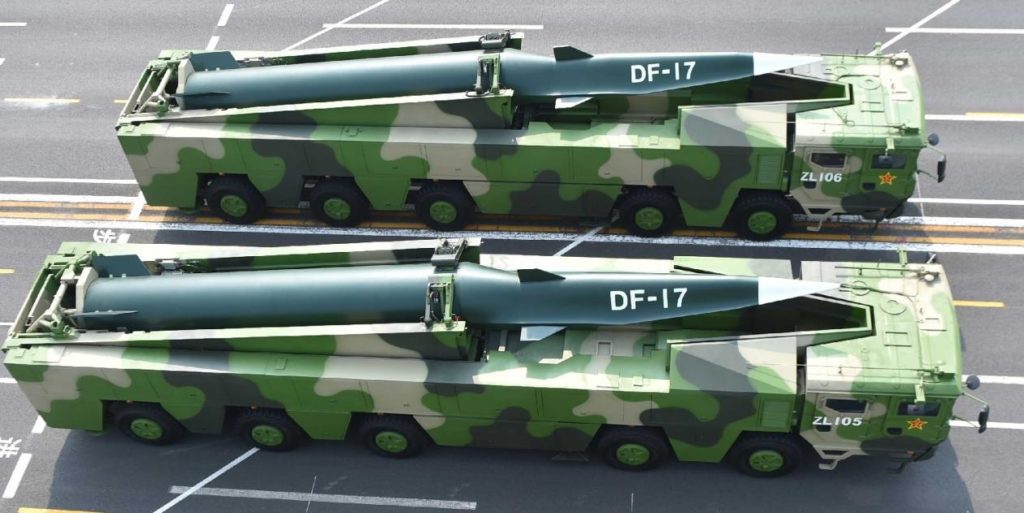
Where, then, can Taiwan turn for help. Militarily, of course, the answer is nowhere, although they may keep their fingers crossed about an American response. But in trading terms, it looks increasingly to the EU. In September, some fifteen European countries launched their first joint campaign to promote investment between the EU and Taiwan. It was a signal of their warming ties with the island despite escalating U.S.-China tensions. It was organised by the European Economic and Trade Office, which serves as the effective European Union embassy in Taiwan, and it shows a Europe increasingly suspicious of China. In fact, in 2018 Taiwan came 18th in the list of the EU’s trading partners, while for Taiwan, the EU comes fourth, after China, the USA and Japan. In fact, the EU has a trade deficit with Taiwan that it would like to put right. The EU’s exports to Taiwan of semi-finished products, machinery and transport equipment confirm its position as an important industrial supplier for Taiwan industry. As for what makes up those exports and imports, office telecommunications equipment, machinery, transport equipment and chemicals are by far the most traded commodities between the EU and Taiwan. Taiwanese imports of services from the EU are dominated by transportation, business, travel and financial services. Taiwanese exports of services to the EU are dominated by sea transportation and business services.
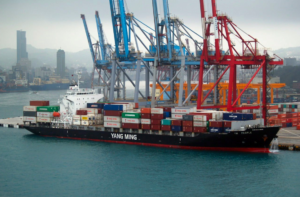
The EU exports very few agricultural products to Taiwan, despite being the world’s biggest supplier globally. Market access – or the lack of it – is seen as the biggest obstacle.
The EU outstrips Taiwan in terms of the services it exports there but these are heavily outweighed by the goods coming the other way. Taiwan has, in fact, one of the fastest-growing economies in the world.
OK, so the growth in GDP is not expected to exceed 2% this year, but that still puts it with a small group of fewer than a dozen countries whose economies are projected to grow at all. In the current coronavirus age, most are shrinking or at best static.
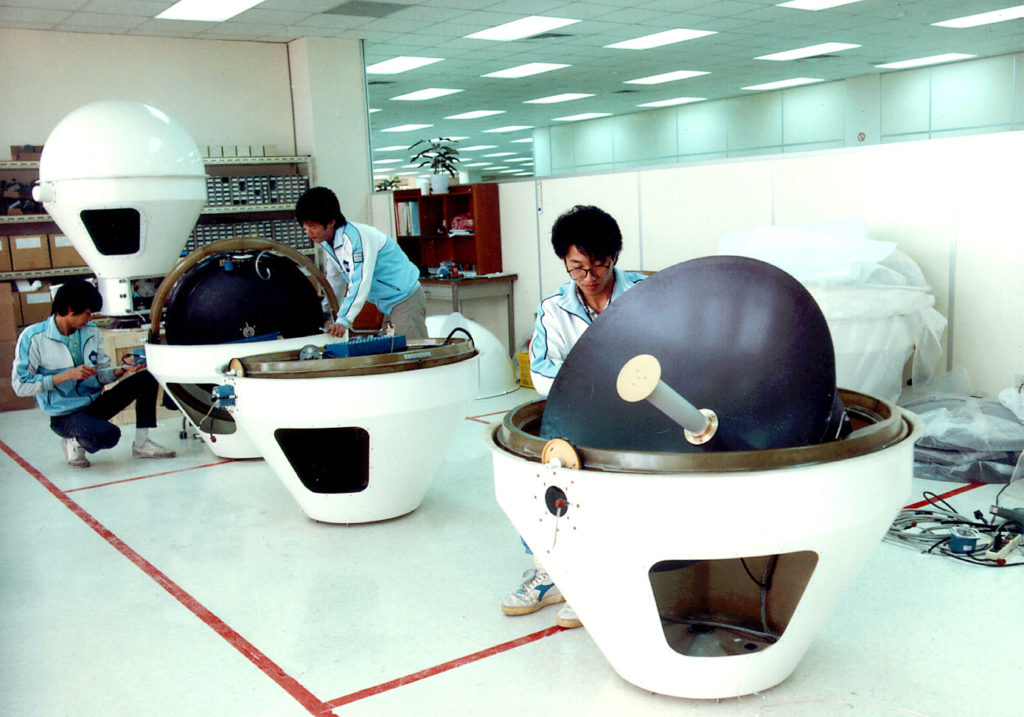
That’s largely down to Taiwan’s success at containing the virus, a near universal willingness on the part of the public to wear masks, whilst simultaneously keeping open its schools, shops and offices. Its other great advantage has allowed it to profit from the pandemic: its main export takes the form of electronics, from small components like microchips to large-scale computer networks, all of which have become increasingly vital in a world where many are forced to work from home and most interviews involve the use of Zoom technology.
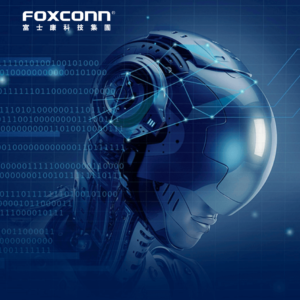
Taiwan’s electronics manufactories have been expanding, while some Taiwanese firms that had been using construction facilities on the Chinese mainland have moved back to escape the tariffs imposed by the United States.
This latest trend makes a welcome change from the previous movement of factories and jobs to the mainland. That was because Taiwan does have some disadvantages: for a start, it’s not very big and, being an island, there is very little opportunity for expansion. Taiwan is also very dependent on China: it’s nearby and rich, so a large proportion of Taiwan’s industrial output inevitably goes there.
FRIENDS AND ALLIES
Taiwan was once known to Europeans as Formosa and it became politically separated from the Mainland when Japan invaded and occupied it in the first half of the 20th century. It cannot have been an entirely unwelcome situation for some: a number of Taiwanese men served in the Japanese armed forces during Worlds War II. But Taiwan has been a place of interest for China for a very long time.
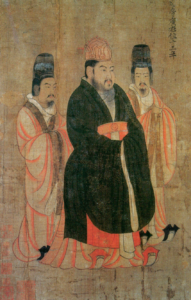
In the very early 7th century, the Sui dynasty emperor Yangdi launched two naval expeditions against what was recorded as Liuqiu, which was probably Taiwan. The first such invasion was repelled and the second withdrew. Both, having been initiated by the unpopular Yangdi, were recorded as ill-conceived and ruinously expensive, according to John Keay’s fascinating book, ‘China: A History’. Taiwan figured large in Chinese affairs again in the 17th century, when Dutch traders were very much engaged there through the Vereenigde Oost-Indische Compagnie (United East India Company). Not permitted a mainland base by the Ming emperor, and after settling briefly on other islands, they chose Taiwan, which they had taken from the Portuguese (who had first called the island Formosa). It was sparsely-populated, its people were consistently hostile and the climate was notoriously bad for Europeans.
The Dutch had been encouraged to settle there by the influential Zheng family, who had used it from time to time as a naval base. It’s a complicated tale of advances and retreats for the Zheng, whose rivalry with the Qing dynasty launched large scale migration to Taiwan, starting in 1661. Zheng’s navy defeated the Dutch, who left the island, while Zheng was hailed as the first Chinese leader to defeat a European force. Zheng died in his thirties but his son became friendly with English traders before his fleet was destroyed in battle by the Qing, when Taiwan was incorporated into China. Statues to Zheng were erected for his patriotism and even the invading Japanese respected them because Zheng had been born near Nagasaki to a Japanese mother.
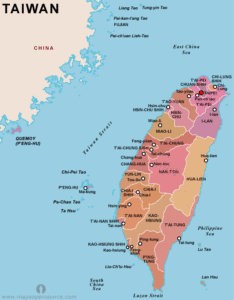
Of course, China does not recognise the independence of Taiwan; it considers the island its own property and has warned Washington not to develop closer ties with it. China’s dismissal of Taiwan is almost certainly why the island country was not invited to send a delegation to a World Health Organisation conference on COVID-19, despite its remarkable success in dealing with the pandemic. From Beijing’s point of view, Taiwan seems to be considered like some sort of ghost: lots of people know it’s there but if we don’t talk about it maybe it will go away. I don’t believe in ghosts but neither do I believe that ignoring a well-known phenomenon will make it disappear. As the old 1899 children’s poem, Antigonish, by William Hughes Mearns puts it:
“Yesterday upon the stair I met a man who wasn’t there. He wasn’t there again today. I wish, I wish he’d go away.”
Taiwan will not go away and however powerful its military may be, can China afford a global war to regain it? It has been discussed in Beijing since 1949 but has never got much further than sabre-rattling, incursion into territorial waters and saying unpleasant things about each other. Returning for a moment to Confucius, he once wrote: “It is easy to hate and it is difficult to love. This is how the whole scheme of things works. All good things are difficult to achieve; and bad things are very easy to get.” For China, getting Taiwan would be both ruinously expensive and extremely unpopular with its neighbours and trading partners.
China’s dislike of Taiwan as an entity almost certainly originates in the long war between Mao’s Communists and Chiang Kai-shek’s Kuomintang. Taiwan, of course, was the place to which Chiang and his army retreated, and which he and his successors ruled without elections until the 1980s, and even then the change to democracy was slow. In its early days, the Kuomintang launched what was called the “white terror”, seizing, imprisoning, torturing or killing anyone not supportive of its brutal forces. It was a continuation of the party’s policies during its war with Mao’s Communists. “As for the dead,” Mao told the British writer and journalist Robert Payne, after a dinner together in Yunnan, “you should ask the Kuomintang, who kill and mutilate the Red Army soldiers who fall into their hands.” He also told Payne that his forces wanted peace. Payne quoted to him the words of the Chinese philosopher Lao Tzu, who had once said that “government should be as simple as cooking little fishes” and asked Mao if he agreed. “You may be sure,” Mao replied, “that when the Communists are in power, government will be as simple as cooking little fishes.” That probably is not how Xi would describe it, but the modern world is more complicated than the one familiar to Mao, who notoriously neither liked nor trusted foreigners. In that, at least, Xi may have agreed with Mao.
For Europe, Taiwan holds the promise of a useful democratic trading partner. In fact, European Parliament Vice President Nicola Beer plans to visit it for talks as soon as the pandemic recedes.
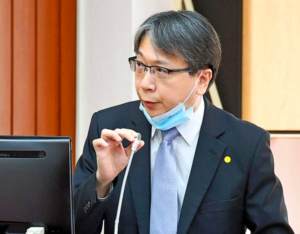
She has already held on-line discussions with Tsai Ming-yen, Taipei’s representative to Belgium and the EU. They discussed freedom, democracy and the worsening situation in Hong Kong, which is a worry for both. Beer wants to see deepening cooperation between Europe and Taiwan, and favours negotiations for a Europe-Taiwan free trade agreement. She also wants the EU to demonstrate greater support for Taiwan’s participation as an observer in international organizations such as the World Health Organization (WHO), as well as strengthened regular exchanges between EU parliamentary members and Taiwanese politicians. She said she wants more scientific cooperation, too. The Taiwanese may have been most pleased that she spoke of the need to counter China’s provocative actions in support of its military ambitions in the South China Sea. Taiwan needs all the friends it can get, especially now that Trump is going. The EU may not have the military might of the United States, nor the power to wield it, but trade can only help to fill Taiwan’s coffers. That, in turn, will serve to underwrite the strengthening of Taiwan’s defences. Beijing will go on provoking, probing Taiwan’s defences, looking for a weak spot. The trick must be to ensure that there are no weak spots.

As Beer said when talking about a mission to meet Taiwan’s leaders, “The situation in Hong Kong shows that Europe should take action before it is too late.”
Intentionally or otherwise, Xi’s constant provocations have made Taiwan and its allies more determined than ever to resist.

